Frequently Asked Questions about Washington Violent Crimes
What types of crimes are considered to be “violent crimes” in Mill Creek?
The United States Department of Justice divides violent crime into five categories:
- Murder
- Rape or Sexual Assault
- Robbery
- Aggravated Assault
- Simple Assault
More types of violent crimes fall under these 5 categories, including arson, carjacking, child abuse, hate crimes, kidnapping, manslaughter, terrorism, and vehicular manslaughter.
What Is the Difference between Assault and Battery?
Assault is the threat of bodily harm that reasonably causes fear of harm in the victim. Battery is the actual physical impact on a victim. If a victim has been touched in any way by the person committing the crime, it is most likely battery; but if the victim has not been touched, and violence has only threatened or attempted, then the crime is assault.
What Is Robbery?
Robbery is taking or attempting to take something of value from another by violence or the threat of violence. Robbery can be committed against individuals, businesses, and institutions such as banks. Armed robbery involves the use of a weapon.
What Is the Difference between Arson and House Burning?
Arson is the malicious burning of the dwelling of another, while house burning involves burning your own house and endangering the property of others.
What Is Kidnapping?
Kidnapping is a form of false imprisonment and usually involves the transportation and/or concealment of another human being. If a victim is held, retained or moved against their will, it is considered to be kidnapping.
What Is a Hate Crime?
A hate crime is defined by the FBI as a criminal offense committed against a person, property, or society which is motivated, in whole or part, by the offender’s bias against a race, religion, disability, sexual orientation or ethnicity/national origin.
Washington laws criminalize the use of force or the threat of force against a person because they are a member of a specific, protected group. The property of certain individuals is also protected by hate crime laws as a result of increased amounts of robbery and arson that were occurring on properties of certain “protected” groups.
Hate crimes can occur in many different ways, including:
- Any act which may result in serious injury
- Any type of injury suffered regardless of the magnitude of injury suffered
- Any form of violent threat that can potentially be carried out
- Any act that leads to property damage
Contact a Lynnwood Violent Crimes Lawyer today if you have further questions about violent criminal charges!


